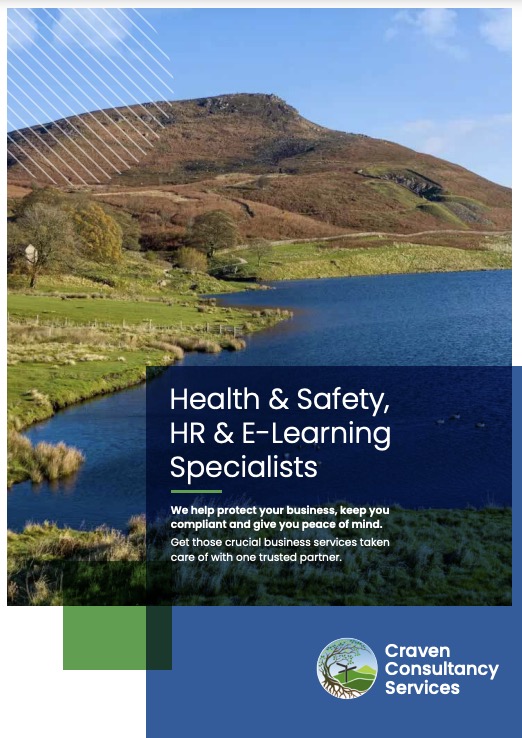These are just some of the Frequently Asked Questions (FAQs) we get asked about HR.
Please get in touch if you have a query
Most employers allow employees to self-certify their absence for the first seven days of sickness, and require a fit note for longer absences. If an employee is absent without a fit note, where they been sick for more than seven days, the employer may be entitled to withhold either contractual sick pay or statutory sick pay (SSP).
It is advisable for employers to inform employees that they must not discriminate against another worker because of a protected characteristic or engage in harassment related to a protected characteristic.
It is advisable for employers to inform employees that they must not discriminate against another worker because of a protected characteristic or engage in harassment related to a protected characteristic.
Employees have the right under the UK General Data Protection Regulation (retained from EU Regulation 2016/679 EU) to request access to information about them that is held on file, whether manually or on computer.
Where a tribunal makes an award of compensation for unfair dismissal the award will consist of a basic award and a compensatory award. The basic award is calculated according to age, length of service and normal weekly pay in the same way as a statutory redundancy payment. For these purposes, where the effective date of termination is on or after 6 April 2022, the maximum amount of a week’s pay is £571.
There is no obligation on a job applicant to disclose their pregnancy to a potential employer. Job applicants are protected from pregnancy and maternity discrimination under s.18 of the Equality Act 2010 and should not suffer any disadvantage in the recruitment process as a result of being pregnant.
There is no requirement to collect data on religion or belief. However, employers may wish to consider adding religion or belief to the categories by which they carry out monitoring. In addition to the normal benefits of monitoring, gathering information on the religion or belief of employees can help employers understand their employees’ needs and help business planning, eg by being able to anticipate when employees may wish to take time off for religious festivals.
Employers can be held vicariously liable for discriminatory acts by employees – even if the event is held off site and out of normal working hours. The claim most likely to arise is probably sexual harassment, but employers should be aware that, under the Equality Act 2010, protection from harassment also extends to unwanted conduct on the grounds of age, disability, gender reassignment, race, religion or belief, and sexual orientation.
No. There is no statutory requirement for an employee to provide a reason when making a statutory request for flexible working. The right to request flexible working is no longer limited to requests made for the purpose of enabling the employee to care for someone and there is no requirement on the employee to set out their reason for making the request.
Whether an employer should deal with an employee’s poor performance through its disciplinary or capability procedure will depend on the nature of the poor performance. The employer will need to carry out an investigation, which will include meeting with the employee concerned, to establish whether the employee’s poor performance is conduct or capability related.
There is no statutory time frame for improvements for underperformance. Timescales for an employee’s improvement must be reasonable and will depend on the circumstances, including the employee’s role and position with the employer and their length of service and past performance.
An employee’s bad attitude could amount to a conduct or capability issue, or both. If an employee is being deliberately antagonistic or wilfully ignoring guidance or instructions on a particular point, this will normally constitute misconduct. However, if this bad attitude is caused by stress because they are struggling to carry out the role due to a lack of training and support, or by a genuine failure to understand what is required, it could be a capability rather than a conduct issue.
Before allowing a job applicant to start work, the employer must carry out a right to work check.
An employer can be subject to civil penalties or criminal prosecution if it employs someone who does not have the right to work in the UK. To guard against this, employers should carry out a right to work check for all individuals to whom they offer employment.
Generally, employees have the right under the UK General Data Protection Regulation (retained from EU Regulation 2016/679 EU) (UK GDPR) to access information that organisations hold about them. However, there is an exemption under sch.2 to the Data Protection Act 2018 (which supplements the UK GDPR) that allows employers to refuse to disclose a confidential employment reference to an employee or former employee if they request access to it. t
If an employer makes a payment in lieu of notice in response to an employee’s resignation, even where there is a contract clause allowing this, there is a risk that bringing forward the termination date by making such a payment would constitute a dismissal (rather than a resignation), which could be held to be unfair. Compensation for unfair dismissal in these circumstances would be limited to the basic award, as the employer would already have compensated the employee for all lost earnings up to the date on which the employment would otherwise have terminated.
In some circumstances, employers should follow their grievance procedure to deal with a grievance raised by an ex-employee, to avoid the risk of additional compensation being awarded against them. The Acas code of practice on disciplinary and grievance procedures does not expressly state that it applies to grievances raised by employees who have already left the organisation. However, the Trade Union and Labour Relations (Consolidation) Act 1992, under which the code is issued, does apply to former employees. Therefore, it is arguable that employers should follow the code when they receive a grievance from an ex-employee.
The statutory right to make a request in relation to study or training applies in respect of employees of organisations that have employed an average of 250 or more employees over the previous 12 months. To qualify for the right, an employee must have been employed continuously by the employer for at least 26 weeks







